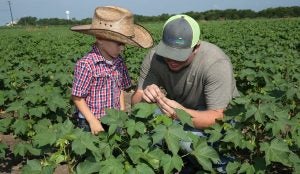With all the twists and turns your life will take, it’s good to have some guidance when you really need it. Here are five things you should know before pursuing an ag degree.
1. You won’t need most of what you learn, and vice versa
I would never say that all the “integrated arts and humanities” classes I was required to take were pointless (at least not publicly), but the truth is that I don’t use most of what I learned in college. And since we can’t remember everything, memory for facts and formulas is generally reserved for those that we recall often or find very interesting. Essentially this results in many hours spent memorizing information that will be forgotten after the class. Conversely, there is a wealth of information that you will need to be successful that is not taught in college classes. This is the more important issue to focus on in my opinion. So, in more practical terms: you first need to know what you need to know.
2. Real-world experience is key
I’ve found that the best way to determine what knowledge is useful for an agricultural professional is to ask farmers. This is where kids raised on a farm usually have the advantage. If they’ve been paying attention, they already have lots of practical knowledge that others will have to learn. Initially it is imperative that you admit what you don’t know when speaking to farmers, otherwise you will lose all credibility when you say something they know to be false! Internships or working on a farm prior to/during your ag degree can be invaluable in terms of gaining experience and figuring out what’s important to know. Learning the jargon of the industry and which issues trouble farmers the most are two other very important skills that you won’t necessarily pick up in the classroom.
3. Think about your goal
Knowing what career path you’d like to take can make better use of your time in college. For example, someone aspiring to be a plant breeder would likely find value in very different classes than someone who hopes to go back to the family farm. Using your elective credits for more than a badminton class (yes, it exists) looks good on your resume and can help toward your future jobs. You can also focus on remembering and saving information from those classes which you know will help you in the long run.
4. Opinions will differ
One important thing to remember before starting classes is that your professors are only human, so naturally they will all come with their own set of experiences, opinions, and biases. The best professors will do a good job of keeping you guessing as to what their opinions are by presenting the pros and cons of all practices, such as organic vs. conventional farming. Just be prepared for different professors to present information that may be contradictory. As long as you know this going in you can be sure to form your own (hopefully fact-based) opinions.
5. There’s still so much we don’t know
One of the biggest things I wish I would’ve known going into my degree is how much uncertainty still exists in agronomy. We have a decent hold on many of the simpler concepts like non-resistant weed control, how much lime to apply to raise pH, etc. However, there are so many “moving parts” in the agricultural machine that we can never be completely precise. The combination of soil type, weather, seed variety, soil biology, and everything else you can think of is far too much for us to be able to manage in the infancy of big data. This frustrated me immensely at first, because I tend to be right-brain oriented and like solving equations that have one solution. But as farmers and friends began asking me questions I realized that the answer was almost always, “Well, it depends on …” Now I try to look at the knowledge gaps as a challenging and exciting opportunity to improve practices with science and technology.

Spartan-state native Michael Swoish is a Michigan State alum who’s currently pursuing his Ph.D. in soil science at Virginia Tech. Michael has taught classes on precision agriculture and has traveled the country to get as much dirt time as possible.



